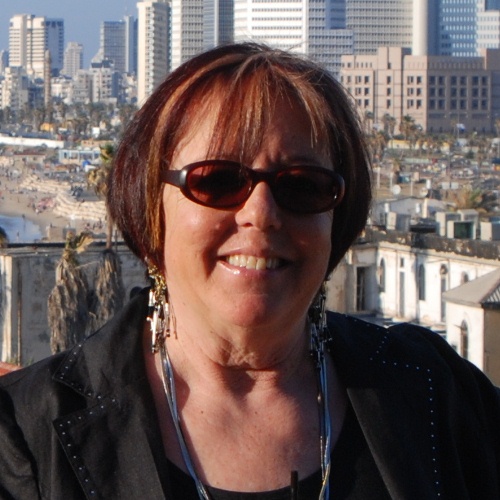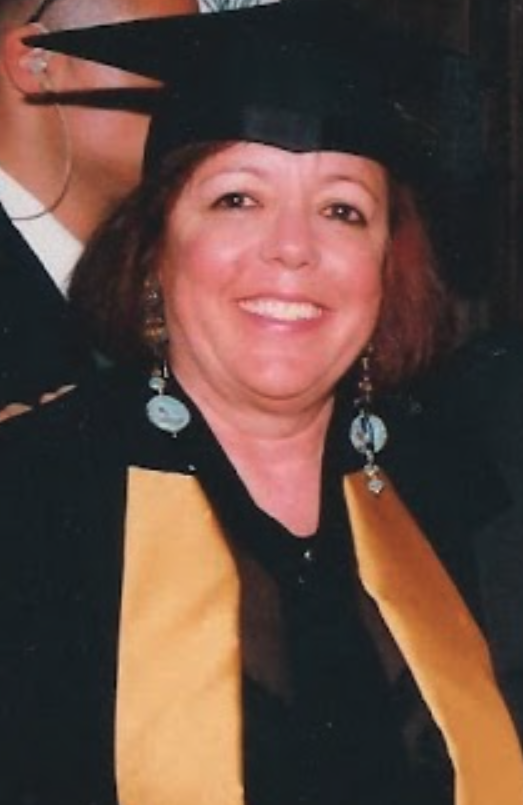Our dear friend, founding director and leader of the Center of Advanced Studies in Mathematics of Ben-Gurion University for about twenty years, former Dean Miriam (Mia) Cohen, passed away November 5, 2023.
 Mia was born in Ramat-Gan in October 1941, to Dr. Hanna and Justin Hirsch,
who had fled Nazi Germany in 1939. She grew up in Petah-Tikva, where she
graduated from high school in 1959, and did her military service in the
communication corps. In 1961 she married Yair Cohen, and a year later the
couple went to the United States to study. Mia got her B.Sc. in Mathematics
in California State University and her M.Sc. at UCLA. The couple returned to
Israel in 1970, and Mia completed her Ph.D. in algebra in 1976 at Tel-Aviv
University, under the direction of I.N. Herstein, visiting from the
University of Chicago, and A.A. Klein. After a post-doc at Bar-Ilan, Mia
joined Ben-Gurion University in 1978 as lecturer in the department of
Mathematics, where she worked until retiring as full professor in 2010. Mia
was a visiting associate professor at USC (1983-84) and at UCLA (1984-85)
and visiting professor at Fudan University in China (1997-98).
Mia was born in Ramat-Gan in October 1941, to Dr. Hanna and Justin Hirsch,
who had fled Nazi Germany in 1939. She grew up in Petah-Tikva, where she
graduated from high school in 1959, and did her military service in the
communication corps. In 1961 she married Yair Cohen, and a year later the
couple went to the United States to study. Mia got her B.Sc. in Mathematics
in California State University and her M.Sc. at UCLA. The couple returned to
Israel in 1970, and Mia completed her Ph.D. in algebra in 1976 at Tel-Aviv
University, under the direction of I.N. Herstein, visiting from the
University of Chicago, and A.A. Klein. After a post-doc at Bar-Ilan, Mia
joined Ben-Gurion University in 1978 as lecturer in the department of
Mathematics, where she worked until retiring as full professor in 2010. Mia
was a visiting associate professor at USC (1983-84) and at UCLA (1984-85)
and visiting professor at Fudan University in China (1997-98).
In 1978 the Cohen family moved to the development town of Yeruham, where they lived for about 10 years. In 1980 she initiated in Yeruham a computer summer camp project, in which participated children from Yeruham and children from Israel’s central area; the latter ones were hosted by Yeruham families. Mia also taught mathematics voluntarily at Yeruham high school and pushed for mathematical excellence programs in Yeruham. The family, by then with four children, moved in 1988 to Lehavim (15 km north of Beer-Sheva), where Yair and Mia lived till Mia’s death.
In the department of Mathematics of BGU, Mia served as chair of the
undergraduate committee (1986-1990), chair of the department, then of
Mathematics and Computer Science (1993-1995), and dean of the faculty of
natural sciences (1998-2002). In 1997 Mia initiated the Bioinformatic
program. As dean, she supervised the creation of a department of computer
science, separately from the department of mathematics (2000). Mia was an
elected Senate representative to the executive committee of BGU’s board of
trustees (1989- 1993).
During the great immigration from the former Soviet Union, Mia was a co-founder in 1992 of the Institute of Industrial Mathematics by BGU, which provided mathematical employment to immigrant mathematicians and theoretical physicists who could not be employed by the universities. This was a success, not financially, but ideologically — about 20 scientists were employed at its peak. Through her contacts with Liz Gaines, Mia founded in 2001 the Center for Advanced Studies in Mathematics of BGU.
Mia was very active in the general mathematical community. She served for many years as associate editor in Communications in Algebra. Mia was president of Israel Mathematical Union (IMU),1992 -1994, and initiated a joint meeting with the American Mathematical Society (AMS) in 1995. She was an Israeli delegate to the council of the European Mathematical Society (attended in this capacity the 1994 Council Meeting in Zurich). Mia was a member of several mathematical prize committees in Israel. In 2017 Mia was elected Fellow of the AMS.
In a period of thirty years, Mia was awarded several research grants by the Israel Science Foundation (ISF) and by the US-Israel Binational Science Foundation (BSF); the latest ISF grant, with S. Westreich, was while she was already professor emerita. Mia supervised two Ph.D. students and several post-doctoral fellows.
Mia’s research was in non-commutative rings. Hopf algebras have been studied from an algebraic perspective since the late 1960s, revealing their extensive applications in fields such as topology, knot theory, $C^*$-algebras, combinatorics, and quantum field theory. Mia was a pioneer in Israel, integrating Hopf algebras and Quantum groups into her non-commutative rings research, subsequently becoming an international leader in this domain.
During the 1970s, there was a lot of interest in topics like non-commutative Galois theory and group-graded algebras. Mia significantly contributed to realizing that these different setups are unified by the fact that both can be considered as H-module algebras over appropriate Hopf algebras H. This realization, along with generalized concepts of smash-products and cross-products, spurred extensive research on these topics and yielded many important results.
In the 1980s, Drinfel’d introduced the term “Quantum groups” in reference to Hopf algebras. With rising interest in the field, Mia shifted her focus to exploring quantum groups using algebraic methods. Her research produced notable findings, such as a version of Schur’s double centralizer theorem generalized to triangular Hopf algebras. She pioneered the concept of Quantum-commutative algebras, discussing it in terms of Yetter–Drinfeld categories. In this context, she addressed quantum version of Fourier transforms and Verlinde-type formulas for Hopf algebras.
In her more recent work, Mia extended the notion of conjugacy classes from groups to Hopf algebras. This extension allows for a structure theorem for semi simple Hopf algebras, in a manner akin to the characterization of finite groups.